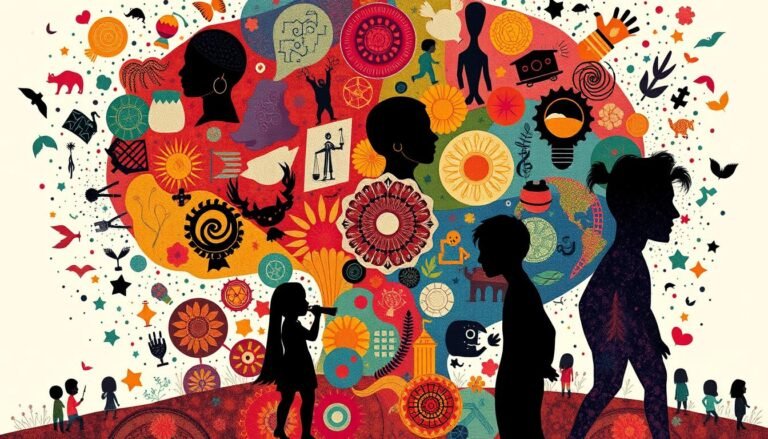Conflict Resolution and Negotiation Skills for Irish Managers
Sarah was facing a tough situation in Dublin one foggy morning. Her top team members were in conflict, causing trouble for the whole department. With important deadlines coming up and everyone feeling stressed, she needed to act fast. This problem is a common one for Irish managers, showing the need for good conflict resolution and negotiation skills.
In today’s work world, knowing how to handle conflict and negotiate well is key. These skills help build good relationships, lower stress, and encourage teamwork. According to Entrepreneur magazine, there are four main ways organizations deal with conflict. These are through individuals, teams, mediation, and arbitration. Learning these techniques is practical and important for your career.
Negotiation skills are useful across many fields, from healthcare to making business decisions. They help managers tackle tough problems, connect with others, and bring success to their team. Today, companies look for employees who have strong negotiation and conflict management skills. They know these abilities can make an organization work better and run smoother.
Key Takeaways
- Developing strong conflict management and negotiation skills is essential for success in the workplace.
- Effective negotiation helps managers navigate difficult situations and build valuable relationships.
- Organizations categorize conflict resolution structures into four types: individual-based, team-based, mediation, and arbitration.
- Employers highly value conflict management and negotiation skills in today’s work environment.
- The course covering these skills is accessible both online and in-classroom, with tailored modules for various industries.
Understanding Conflict Management
Handling disputes the right way is key for a peaceful workplace. There are many techniques to keep conflicts from growing. This helps keep workspaces positive and helps both the team and the company.
Definition of Conflict Management
Conflict management is about dealing with arguments smartly and fairly. It includes using good communication and problem-solving. By doing this, we lessen the bad effects of arguments at work. It’s also a way to make sure the work environment stays positive.
Importance in Today’s Work Environment
Today, we need good ways to manage disagreements at work. Lots of people think learning how to solve conflicts is important. This is shown by the fact that many companies offer this kind of training, and most people who go back for more.
Learning to solve conflicts is good because it fixes the real issues. Everyone involved feels they’ve been listened to and respected. This is critical for a peaceful and effective work environment. It also shows that often, learning these skills can help your career.
To sum up, knowing how to manage conflict well is crucial for workplace leaders. It not only makes the office a better place but also helps everyone grow and feel happy at work.
Building Effective Negotiation Skills
Negotiation skills are crucial for finding solutions that everyone can agree on. To be good at negotiating, you need strong communication, the ability to build relationships, and a focus on what both sides can gain.
Definition of Negotiation Skills
Negotiation skills mean you can talk and work with others to find common ground. It’s about knowing what you need, keeping calm, and being able to persuade others to get what you want.
Key Components of Effective Negotiation
To negotiate well, you must be ready, have a plan, and be good with people:
- Preparation and Research: It’s vital to know the topic and people involved well.
- Persuasive Communication: Describe your point effectively while understanding theirs.
- Emotional Intelligence: Keep cool to stay focused during the talk.
- Relationship-Building: It’s important to build trust and respect with others.
- Compromise and Flexibility: Be ready to give a little to get a little for the best result.
Benefits of Strong Negotiation Abilities
Being great at negotiation has many upsides:
- Enhanced Relationship-Building: Good negotiations can lead to strong, trusting partnerships.
- Achieving Mutual Benefit Negotiation: It can help everyone find a fair and winning solution.
- Professional Growth: Better negotiation means more success in your job and as a leader.
- Improved Conflict Resolution: Solve problems easier by talking well and working as a team.
Effective Communication for Conflict Resolution
Effective communication is key in resolving conflicts. Knowing how to talk and listen can lower stress and increase understanding. After a decade in law, I’ve learned that good communication stops fights before they start.
Active listening and giving helpful feedback are vital. Let’s dive into these important parts of solving conflicts.
Role of Active Listening
Active listening is crucial in solving disagreements. It means really focusing, understanding, and remembering what someone says. It makes others feel valued and can solve issues peacefully.
When people know their needs matter, like feeling respected, they’re more open to fixing things without a big fight.
- Concentration: Focus entirely on the speaker without distractions.
- Understanding: Grasp the message behind the words, considering emotions and intentions.
- Response: Acknowledge the speaker’s points thoughtfully and empathetically.
- Memory: Retain the key aspects of the conversation for future reference.
Using active listening changes talks for the better. It removes tension and sets up more productive chats.
Constructive Feedback Techniques
Giving useful feedback is key in conflict resolution. It means offering helpful, clear, and honest advice to make things better. This kind of feedback helps everyone grow and understand each other better.
When addressing issues, talking calmly and outlining steps helps a lot. It clears up confusion and cuts the risk of things getting worse.
- Be Polite and Respectful: Approach the conversation with a respectful attitude.
- Keep Goals in Mind: Focus on the desired outcome of the feedback.
- Maintain Factual Communication: Base feedback on concrete observations rather than assumptions.
- Consider Written Communication: For sensitive issues, written feedback ensures clarity and can be reviewed by a trusted friend beforehand to provide a different perspective.
Great communication in solving conflicts mixes active listening and useful feedback. They stop fights from blowing up and make sure everyone feels understood.
Emotional Intelligence in Managing Conflicts
Emotional intelligence (EI) is key for managers in conflict situations. It means being aware of and handling your feelings. Also, it is about how you understand and deal with others’ emotions. Daniel Shapiro, in Conflict Resolution and Negotiation, says emotions are key in resolving conflicts. Let’s explore EI’s important parts in conflict management: understanding and controlling emotions and creating empathetic connections.
Understanding and Managing Emotions
First, it’s crucial to understand and control your emotions. During conflicts, people often see each other as opponents. They focus on their own needs, which can lead to anger or fear. Learning to regulate emotions can change anger or fear into more positive feelings like curiosity and caring. Improving EI helps create a more cooperative atmosphere.
It’s vital for managers to develop emotional intelligence before conflicts start. These skills help them handle disputes better. Tests like TTI Emotional Quotient look at key emotional intelligence aspects, showing its direct link to solving conflicts. Shapiro’s studies also highlight EI’s importance. He says it makes managers ready for tough talks and for getting better results.
Building Empathetic Relations
Showing empathy is essential for conflict management. Emotional intelligence lets managers really understand their team’s feelings. This insight is key in building supportive relationships. These relationships are vital for a workplace where people can talk openly and solve problems together.
Tools like the DNA Profile can measure important skills such as empathy and negotiation. Shapiro also adds that how people interact matters a lot. By focusing on communication, managers can clear up misunderstandings and deal with conflicts better.
Emotional intelligence’s value in conflict management is huge. Shapiro believes it’s more important than just having negotiation skills. EI helps managers overcome struggles between people and find lasting solutions.
| Assessment Tool | Core Focus |
|---|---|
| DISC Profile | Behavioral Tendencies |
| Driving Forces | Core Values |
| TTI Emotional Quotient | Dimensions of Emotional Intelligence |
| DNA Profile | Conflict Management Competencies |
Problem-Solving Strategies for Managers
To solve problems effectively, managers need to address conflicts, find the root causes, and create new and practical solutions. By handling disputes strategically, managers can make their work environment more united and ready to act.
Identifying Underlying Issues
Good managers know how to look beneath the surface to find the real reasons behind workplace problems. They carefully examine conflicts to see if they’re caused by gaps in the organization, misunderstandings, or bigger issues. Using leadership that includes everyone can help find hidden issues. This kind of leadership has been proven to increase productivity by 50% and innovation by 90%, according to a BetterUp study.
Deloitte found that 74% of executives had trouble meeting well-being goals because of a heavy workload and long hours. Finding these stressors is key to solving bigger problems that affect how well employees work and feel.
Developing Creative Solutions
After finding the heart of the issue, the next step is to think creatively. Managers should come up with new, out-of-the-box ideas that work towards the organization’s goals. This might involve changing how teams are set up, creating new ways of working, or updating policies to meet the changing needs of employees.
When it comes to solving problems in management, certain actions can make a big difference. For example, according to BetterUp, paying well, creating a positive work atmosphere, and providing chances for career growth are key. Also, celebrating when employees do well and asking for their feedback can make teams more involved and innovative.
Cultural Awareness in Irish Management
In Ireland, knowing the culture well is key for managers. This is because the country values close teamwork, caring for the employees, and getting real outcomes. To be a successful manager in Ireland, learn about Irish business ways and how they like to talk.
Irish Business Culture and Communication Styles
The business world in Ireland mixes old ways with new energy. Leaders here show they care, are easy to talk to, and really connect with their teams. They prefer to speak clearly, often use humor, and don’t mind taking some risks. Knowing that nearly everyone can read and write, and most go on to further education, shows their commitment to knowledge.
When Irish people talk at work, they get right to the point. Politeness means you should know what you’re saying before you say it. They like to stick to the facts and make plans that work quickly. This shows their practical side and how flexible they can be.
Collaborative Approach and Humor
In Irish businesses, it’s not just about the job, but about really connecting with each other. People there enjoy spending time together in pubs, building bonds that help work go smoothly. More young Irish folks are getting higher education than ever before, which makes them great at working together.
Using humor is common in work talks in Ireland. It can make things light, help get along, and lead to a better working vibe. Mangers often use teamwork and humor to make strong, problem-solving groups.
“Irish people are known for valuing facts and empirical evidence in business negotiations, focusing on pragmatic results while maintaining flexibility and a good sense of humor.”
Implementing Conflict Prevention Strategies
Using strategies to avoid conflicts is key for a friendly workplace. By acting before problems start, groups can enjoy peace. This keeps the work area creative and happy.
Having clear ways to talk is very important. It means making sure everyone knows their jobs and goals. Talking openly and regularly stops fights before they start.
Building the team with fun activities is another helpful method. It makes the group work better together and trust more. This makes work a better place for everyone, cutting down on stress.
Creating a culture where different voices matter stops fights early. This means letting employees share their worries openly. Solving issues before they get big keeps the peace.
Teaching your team to manage conflicts changes everything. It helps bosses know how to help in tough situations. Skills like listening and talking can make a big difference.
A CIPD study shows bosses find managing tough talks hard. Proper training can develop their skills, making them better peacemakers. This makes the whole team work better.
Here is a chart showing different ways to settle conflicts and how well they work:
| Conflict Resolution Structure | Settlement Rate |
|---|---|
| Individual-Based | 80-90% |
| Team-Based | 75-85% |
| Mediation | 80-90% |
| Arbitration | 70-80% |
By making these steps part of regular HR plans, organizations stay ahead of conflicts. They help keep the team united and working well. Quick conflict solutions lead to a stronger, happier team.
Conflict Resolution and Negotiation Skills for Irish Managers
Irish managers need to master how to create compromise solutions and participate in negotiations that benefit everyone. This shows they understand resolving conflict is more than just one side winning. It’s about finding solutions that help all involved.
Compromise Solutions
In compromise solutions, both sides agree to give up some demands to find a middle ground. This approach mirrors the Irish aversion to aggressive stances and over-the-top claims. It helps build trust and cooperation. Such integrative negotiations ensure that every side feels respected, resulting in agreements that last longer.
Win-Win Negotiations
In win-win negotiations, the aim is for all sides to come out ahead through cooperation. Irish business culture, with its emphasis on straightforwardness and working together, naturally supports this. By focusing on resolving disputes in ways that meet everyone’s needs, managers can ensure fair and fruitful deals. This method also suits Ireland’s comfort with moderate change and risk, avoiding negotiation pitfalls that might cause embarrassment.
Collaborative Conflict Management Techniques
Techniques for managing conflict collaboratively rely on clear, shared communication and mutual success. In Ireland, managers who often face union negotiations must be skilled at these approaches. By employing interest-based bargaining, they can work towards solutions that all parties can agree on. This not only resolves conflict but also boosts team spirit. It encourages team members to share their expertise, making the conflict resolution process stronger.
| Key Element | Irish Management Style | Conflict Resolution Approach |
|---|---|---|
| Collaborative Approach | Focus on relationship-building | Consensus-building |
| Work Environment | Emphasis on employee well-being | Focus on integrative negotiations |
| Team Collaboration | Tangible skills and idea contributions | Collaborative conflict management |
Conclusion
Mastering conflict resolution and negotiation is key for Irish managers today. It’s important in a diverse, complex business world. They should focus on ways to manage conflicts strategically and negotiate well.
Improving in these areas is important for a peaceful workplace. It also helps Irish managers stand out in the global market. Ireland has developed its conflict-solving approaches over the years. This shows how crucial it is to be flexible and skilled in handling conflicts.
Today, work-related conflicts can be very personal and complicated. Using mediation, arbitration, and good management can help. These approaches make sure that issues are dealt with early, keeping the work smooth. A proactive strategy in dealing with conflicts and negotiation not only prevents problems but also builds a culture of improvement and strong leadership.
FAQ
What are conflict resolution strategies for Irish managers?
Irish managers use effective communication and problem-solving. They are aware of different cultures. They also use negotiation skills to solve disputes at work. This helps everyone work together well.
What is conflict management?
Conflict management is about dealing with problems in a positive way. It aims to lessen harm while finding good outcomes for all. It uses tools like talking well, solving problems, and negotiating.
Why is conflict management important in today’s work environment?
Handling conflicts well keeps the workplace positive and encourages teamwork. It lowers stress and makes sure problems are dealt with in a respectful way. Conflict management is key in a modern work setting.
What are negotiation skills?
Negotiation involves talking to others to find a solution everyone can agree on. It includes give and take, convincing others, and building relationships for the good of all.
What are the key components of effective negotiation?
Effective negotiation means understanding the situation and what everyone needs. It’s about being in control of your feelings and using strategies that help everyone win. It’s not just about winning for yourself.
How do strong negotiation abilities benefit managers?
Good negotiation skills help managers in many ways. They can handle tough situations, make good relationships, and meet goals that help the company. These skills also make them better leaders.
What is the role of active listening in conflict resolution?
Active listening means really focusing on what the other person is saying. It’s about understanding and responding thoughtfully. This helps avoid misunderstandings and leads to better talks.
What are constructive feedback techniques?
Constructive feedback is a way of giving helpful, clear, and fair comments. It’s not about pointing fingers but about finding ways to make things better. This can solve conflicts by making positive changes.
How does emotional intelligence impact conflict management?
Emotional intelligence helps managers know and control their feelings. This makes them better at understanding and connecting with others. It’s great for solving disagreements and building strong teams.
How can managers identify underlying issues in conflicts?
To find out what’s really causing a conflict, managers need to look closely. They should talk to everyone involved and really listen to each side. This helps them understand the main issues.
What are creative solutions for conflict resolution?
Creative solutions think beyond obvious answers. They listen to different viewpoints and come up with fresh ways to solve problems that fit with what the company values. This can bring people together and make the team stronger.
What is unique about Irish business culture and communication styles?
Irish business culture values working together, looking after employees, and getting real results. They talk straight, like a joke, and take some risks. They care about their team and work to keep things positive.
How does a collaborative approach and humor play a role in conflict management in Ireland?
In Ireland, working together and making light of things helps a lot. It makes the workplace more inviting, encourages honest talks, and builds a strong team. It respects the Irish way of handling conflict. This way, everyone can work well together.
What are conflict prevention strategies?
Preventing conflict means setting up good ways to talk, clearly defining everyone’s role, and working to build a team. A company culture that respects people and listens well can stop problems before they start.
What is a compromise solution in conflict resolution?
A compromise finds a middle ground that’s okay for everyone. It’s about giving and taking so that everyone can agree on something. It might not be perfect, but everyone is okay with it.
What are win-win negotiations?
Win-win talks are about finding solutions that make all sides happy. This means working together to achieve common goals. It leads to solutions that work well for everyone in the long run.
What are some collaborative conflict management techniques?
Techniques like talking about shared interests, solving problems together, finding a mediator, or having a facilitator can help. These methods promote good talks and focus on what everyone wants.
Source Links
- Conflict Management and Negotiation Skills
- Empower Leadership | Ireland CPD by learnformula
- Negotiation Skills Course | Irish Times TrainingCourse details | Irish Times Training
- Conflict Management Course
- Conflict Resolution Course
- Being a leader in any organization is no easy task. Not only are leaders responsible for their actions, and the ramifications thereof, they are also responsible for the behavior and actions of their team members. Running a team like a well-oiled machine is no easy task, as more often than not it
- Negotiating the Good Friday Agreement
- A Guide to Mastering the Art of Negotiation | Teamgate Blog
- Conflict Management & Negotiation Skill CPE Course | myCPE
- Using Constructive Communication to Resolve Conflict
- Negotiation Skills For Leaders – EILM.EDU.EU
- 5 Steps For Effective Conflict Resolution – Crisis & Trauma Resource Institute
- Solving the Biggest Problems: Daniel Shapiro on Emotional Intelligence and Negotiation
- Conflict Resolution – TTI Success Insights Ireland
- Leading with Emotional Intelligence Training Course in Ireland
- Vital Management Skills To Help You Support Your Team – NxtGEN Executive Presence
- Conflict Resolution Course Materials
- Four Conflict Negotiation Strategies for Resolving Value-Based Disputes
- Ireland
- Famous Negotiators: Tony Blair’s 10 Principles to Guide Diplomats in International Conflict Resolution
- Culture-Based Negotiation Styles
- Conflict Management and Negotiation Skills
- How To Implement A Mediation Mindset In Your Organisation – Mary Rafferty
- No title found
- The Irish Management Style
- Leading & Negotiating for Project Success – Institute of Project Management
- Negotiating for Value – Trinity Business School
- WP 48 E_web.pdf








